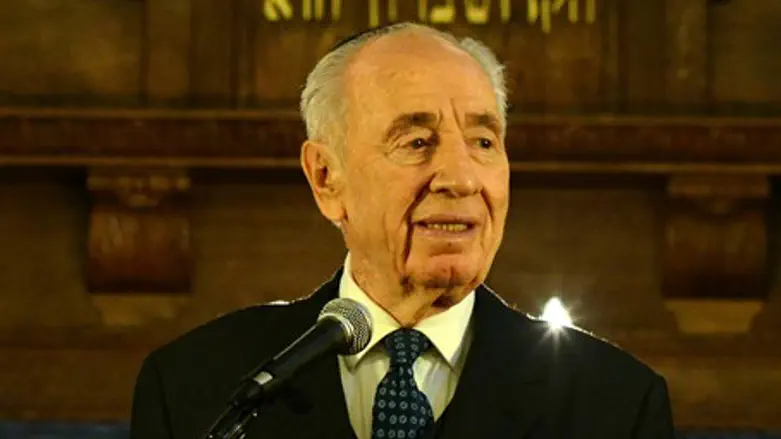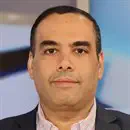
Former Education Minister Rabbi Shai Piron spoke with former President Shimon Peres about Holocaust Remembrance Day on Channel 2's Reshet.
During their talk, Peres said that it is necessary to visit the extermination camps in Europe in order to digest the enormity of the crimes. "I was there, I saw the tallits, the shoes and the hair. It was a record level of horror that has no parallel."
He explained that there have been genocides throughout history but only the Holocaust was "so brutal and Satanic, so organized and animalistic. It was the only one like that."
The former President recalled his grandfather who was killed. "I remember, as a child, the Kol Nidrei prayer. My grandfather had a unique voice. I was under his tallit as a child and I heard how he prayed on the day of judgment. As a child, I silently begged to God: 'Don't hurt us... have mercy on your people.' I asked for mercy as the Kol Nidrei tune drew me in."
Peres's grandfather studied in the Volozhin Yeshiva until he was murdered. "We went to the train station before making aliyah in 1934. It was very moving. My grandfather stood next to me, wrapped in thought and not saying a word. He hugged me and came up to me before we parted, saying "My child, be a Jew." This was his will and testament - it wasn't just words. He wanted me to conduct myself as a Jew. I still hear it everywhere I go."
The Nazis and their local accomplices murdered his grandfather, along with 2,060 members of Vishnev, in August 1942. "The Nazis gathered the residents of the village in the wooden synagogue and brutally shot and burned them. My grandfather went at the head of the group, wrapped in his tallit, straight to the synagogue that was set on fire by the Nazis."
The family only learned of the horror three years later. "Did you cry?" asked Rabbi Piron. Peres answered: "I don't usually cry tears. I think that crying is an internal matter - what is crying? It's a bitter scream."
He explained that, after the horror of the Holocaust, his relationship with religion and God did not falter. When Ben Gurion asked him to lead the negotiations to release yeshiva students from IDF service, "I couldn't help but see my grandfather in each and every one of the yeshiva students."
He added that "despite the terrible Holocaust, we must remember the renewal with great pride. My grandfather followed the Torah and defended it, along with thousands of Jews. Without Judaism, what meaning would we have in our lives? Judaism is not a religion, it's a faith. It's not a mechanism or a cult. It's a deep personal conviction that we have a conscience.
"The Jewish People with only the Holocaust and without Mount Sinai would have no meaning. I think that we were murdered because of Mount Sinai. Hitler decided to destroy the Jewish People, not because of our strength - there were 300,000 Jews in Germany who were loyal to the state -- but that Hitler could have said 'Germany above all' and the Jews say 'Everyone is created in the image of God.' This is a very strong conflict but it has enormous meaning."

